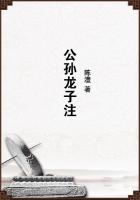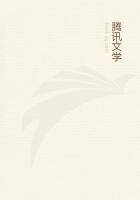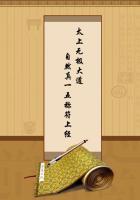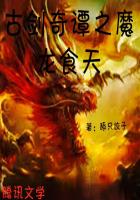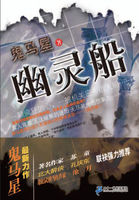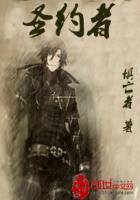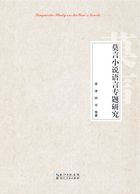From what has been said, then, it is plain that nature in the primary and strict sense is the essence of things which have in themselves, as such, a source of movement; for the matter is called the nature because it is qualified to receive this, and processes of becoming and growing are called nature because they are movements proceeding from this. And nature in this sense is the source of the movement of natural objects, being present in them somehow, either potentially or in complete reality.
5
We call 'necessary' (1) (a) that without which, as a condition, a thing cannot live; e.g. breathing and food are necessary for an animal; for it is incapable of existing without these; (b) the conditions without which good cannot be or come to be, or without which we cannot get rid or be freed of evil; e.g. drinking the medicine is necessary in order that we may be cured of disease, and a man's sailing to Aegina is necessary in order that he may get his money.-(2) The compulsory and compulsion, i.e. that which impedes and tends to hinder, contrary to impulse and purpose. For the compulsory is called necessary (whence the necessary is painful, as Evenus says: 'For every necessary thing is ever irksome'), and compulsion is a form of necessity, as Sophocles says: 'But force necessitates me to this act'. And necessity is held to be something that cannot be persuaded-and rightly, for it is contrary to the movement which accords with purpose and with reasoning.-(3) We say that that which cannot be otherwise is necessarily as it is. And from this sense of 'necessary' all the others are somehow derived; for a thing is said to do or suffer what is necessary in the sense of compulsory, only when it cannot act according to its impulse because of the compelling forces-which implies that necessity is that because of which a thing cannot be otherwise; and similarly as regards the conditions of life and of good; for when in the one case good, in the other life and being, are not possible without certain conditions, these are necessary, and this kind of cause is a sort of necessity. Again, demonstration is a necessary thing because the conclusion cannot be otherwise, if there has been demonstration in the unqualified sense; and the causes of this necessity are the first premisses, i.e. the fact that the propositions from which the syllogism proceeds cannot be otherwise.
Now some things owe their necessity to something other than themselves; others do not, but are themselves the source of necessity in other things. Therefore the necessary in the primary and strict sense is the simple; for this does not admit of more states than one, so that it cannot even be in one state and also in another; for if it did it would already be in more than one. If, then, there are any things that are eternal and unmovable, nothing compulsory or against their nature attaches to them.
6
'One' means (1) that which is one by accident, (2) that which is one by its own nature. (1) Instances of the accidentally one are 'Coriscus and what is musical', and 'musical Coriscus' (for it is the same thing to say 'Coriscus and what is musical', and 'musical Coriscus'), and 'what is musical and what is just', and 'musical Coriscus and just Coriscus'. For all of these are called one by virtue of an accident, 'what is just and what is musical' because they are accidents of one substance, 'what is musical and Coriscus' because the one is an accident of the other; and similarly in a sense 'musical Coriscus' is one with 'Coriscus' because one of the parts of the phrase is an accident of the other, i.e. 'musical' is an accident of Coriscus; and 'musical Coriscus' is one with 'just Coriscus' because one part of each is an accident of one and the same subject. The case is similar if the accident is predicated of a genus or of any universal name, e.g. if one says that man is the same as 'musical man'; for this is either because 'musical' is an accident of man, which is one substance, or because both are accidents of some individual, e.g. Coriscus. Both, however, do not belong to him in the same way, but one presumably as genus and included in his substance, the other as a state or affection of the substance.
The things, then, that are called one in virtue of an accident, are called so in this way. (2) Of things that are called one in virtue of their own nature some (a) are so called because they are continuous, e.g. a bundle is made one by a band, and pieces of wood are made one by glue; and a line, even if it is bent, is called one if it is continuous, as each part of the body is, e.g. the leg or the arm. Of these themselves, the continuous by nature are more one than the continuous by art. A thing is called continuous which has by its own nature one movement and cannot have any other; and the movement is one when it is indivisible, and it is indivisible in respect of time. Those things are continuous by their own nature which are one not merely by contact; for if you put pieces of wood touching one another, you will not say these are one piece of wood or one body or one continuum of any other sort. Things, then, that are continuous in any way called one, even if they admit of being bent, and still more those which cannot be bent; e.g. the shin or the thigh is more one than the leg, because the movement of the leg need not be one. And the straight line is more one than the bent; but that which is bent and has an angle we call both one and not one, because its movement may be either simultaneous or not simultaneous; but that of the straight line is always simultaneous, and no part of it which has magnitude rests while another moves, as in the bent line.
(b)(i) Things are called one in another sense because their substratum does not differ in kind; it does not differ in the case of things whose kind is indivisible to sense. The substratum meant is either the nearest to, or the farthest from, the final state.

